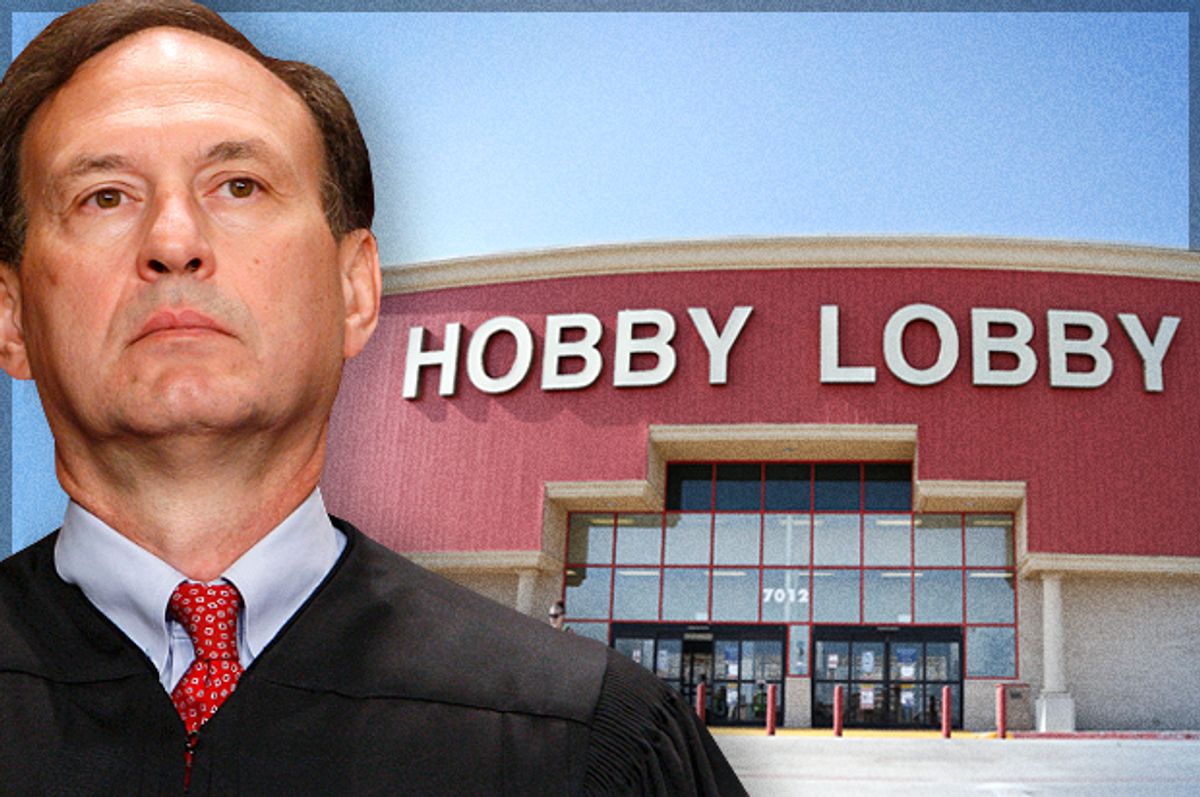We've already established that the Supreme Court decision in Burwell v. Hobby Lobby, Inc., was a sweeping ruling that has set a dangerous precedent for the control employers can have over their employees -- particularly female employees. It also opened the door to other forms of discrimination that have nothing to do with birth control. But the issue of access to birth control still matters, quite a lot. Just how much has become more clear -- and startling -- in the days since the opinion was handed down.
On Tuesday, the Supreme Court sent six challenges to the contraception requirement of the Affordable Care Act back to lower federal courts to be considered in light of its opinion. As Jessica Mason Pieklo at RH Reality Check notes, in three cases, federal appeals courts had ruled against challenges to the contraception requirement. Those courts are now being ordered to review those challenges now that closely held for-profit corporations are "people" who can have faith that is protected under the Religious Freedom Restoration Act.
One of those cases was brought by Michael Potter, the owner of Eden Foods. The same Michael Potter who told Irin Carmon and Salon in 2013 that he didn't want to cover any methods of contraception for his female employees because of his Catholic faith. Other reasons he cited? Because "I'm a man" and "I don’t care if the federal government is telling me to buy my employees Jack Daniel’s or birth control. What gives them the right to tell me to do that?”
In response to the Supreme Court decision in Hobby Lobby, Potter said, "I am very grateful to hear today that the Supreme Court has protected the rights of the Constitution for the people of the United States.”
So no, this case has never been about "just" four methods of contraception. Those methods of contraception are basic healthcare and should be included in all insurance plans, but people -- like Justice Samuel Alito -- issuing reassurances about the narrow scope of this ruling are kidding themselves. Corporations can now come at their employees to take away every method of contraception covered under the new healthcare law, and that's really just the beginning.
Consider this another demoralizing counterpoint to anyone who is still trying to argue that this case is limited, or who can't understand why people are up in arms about a ruling that sanctions discrimination against women. This case started big: The essential questions of whether an employer can dictate what an employee does with his or her paycheck and whether corporations can have faith were wildly important from the start. But the scope and impact of this case has only grown the more we learn about what this decision really means.

Shares